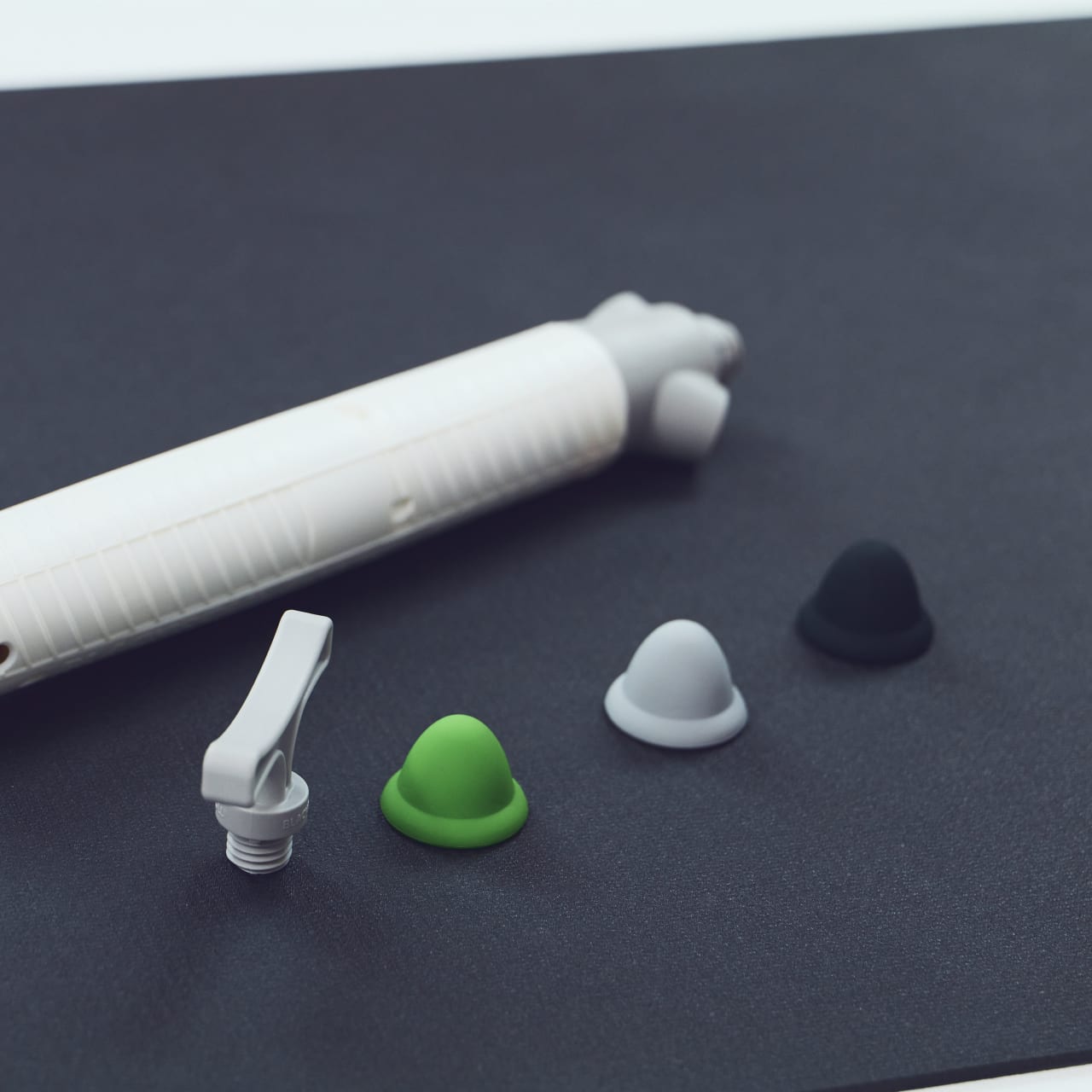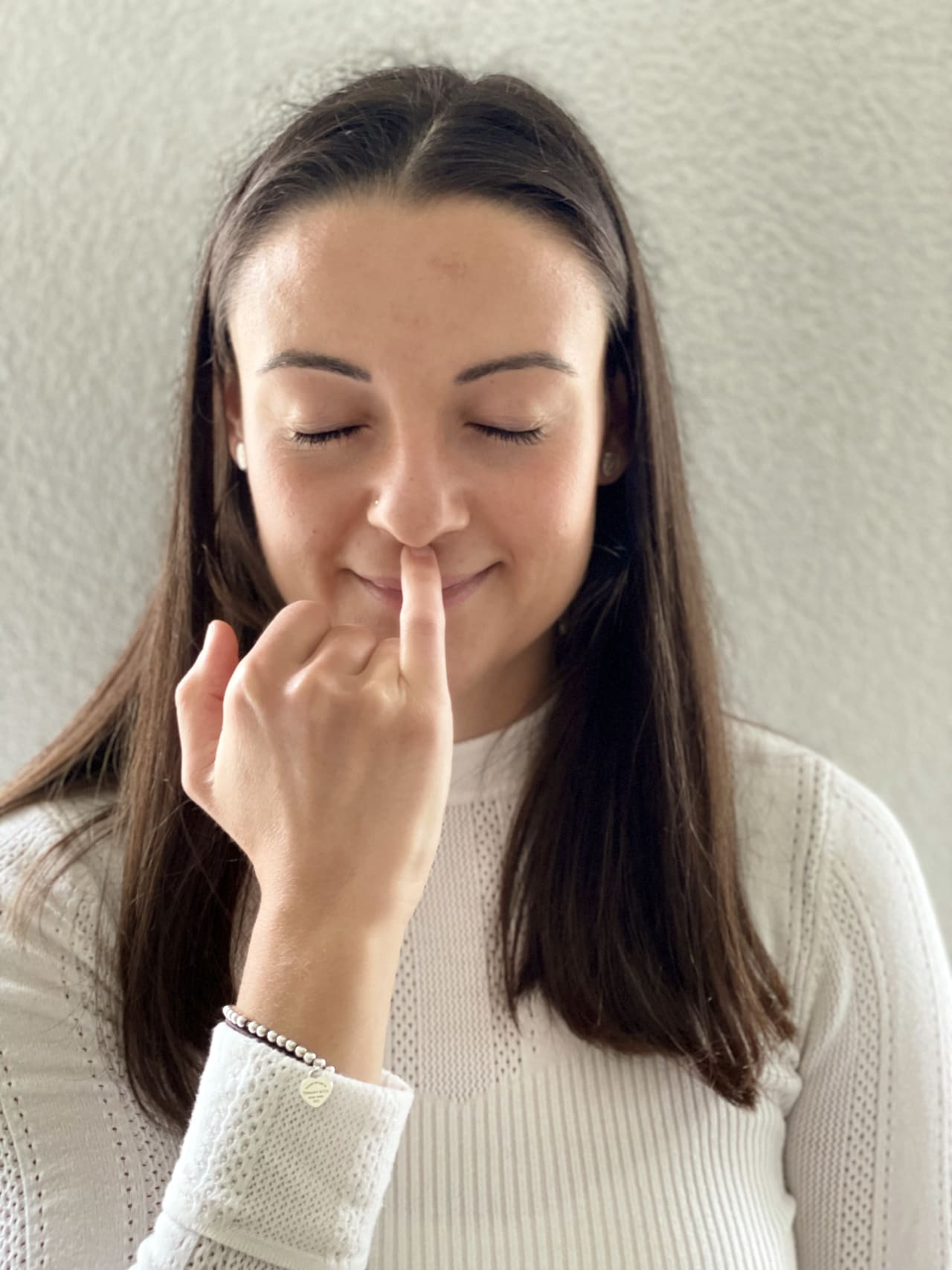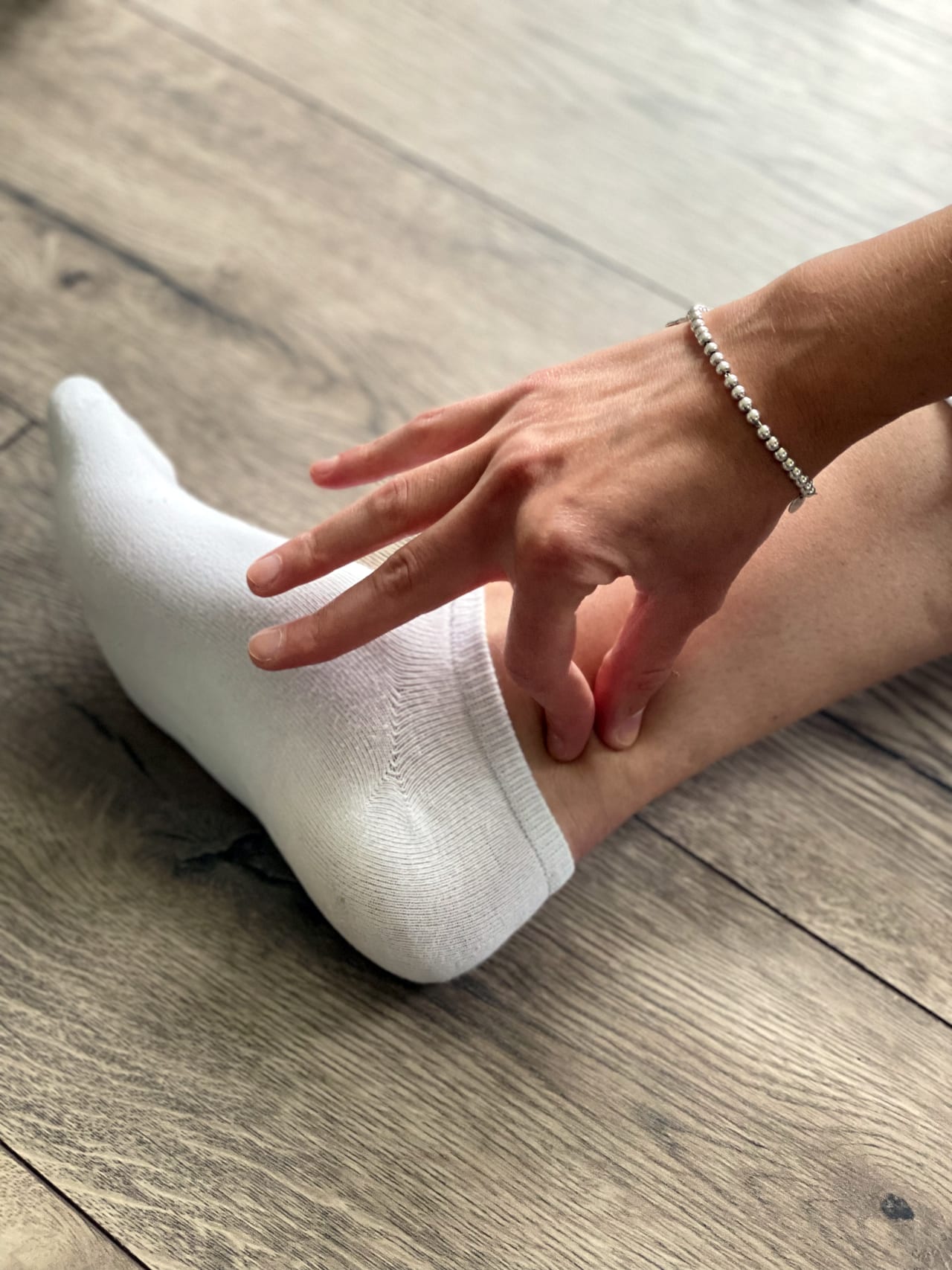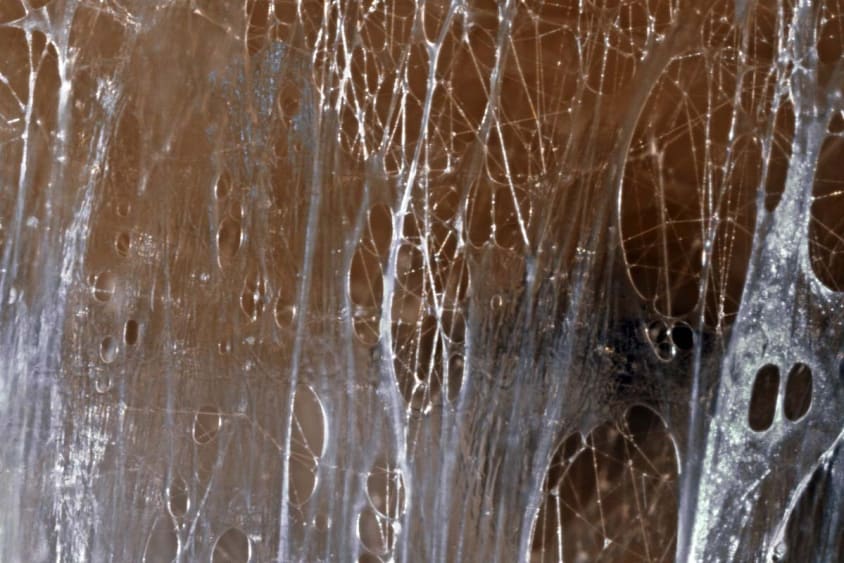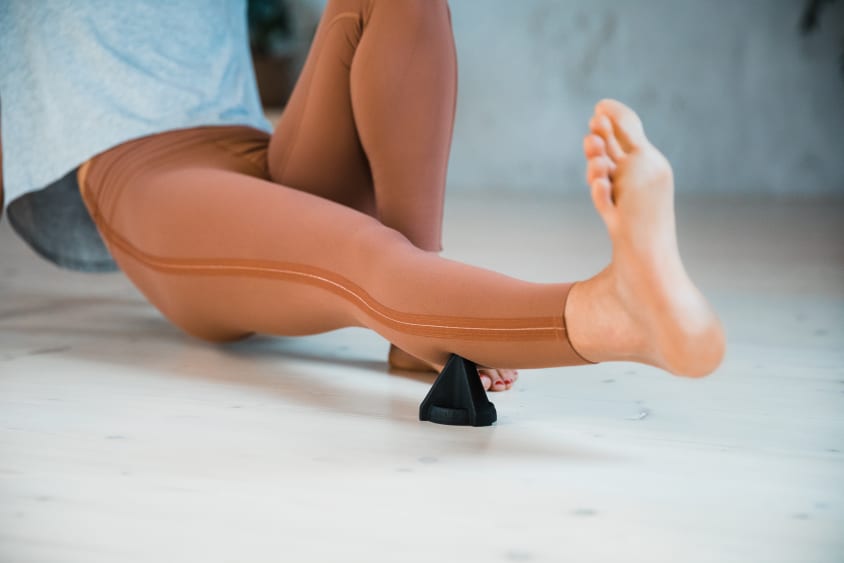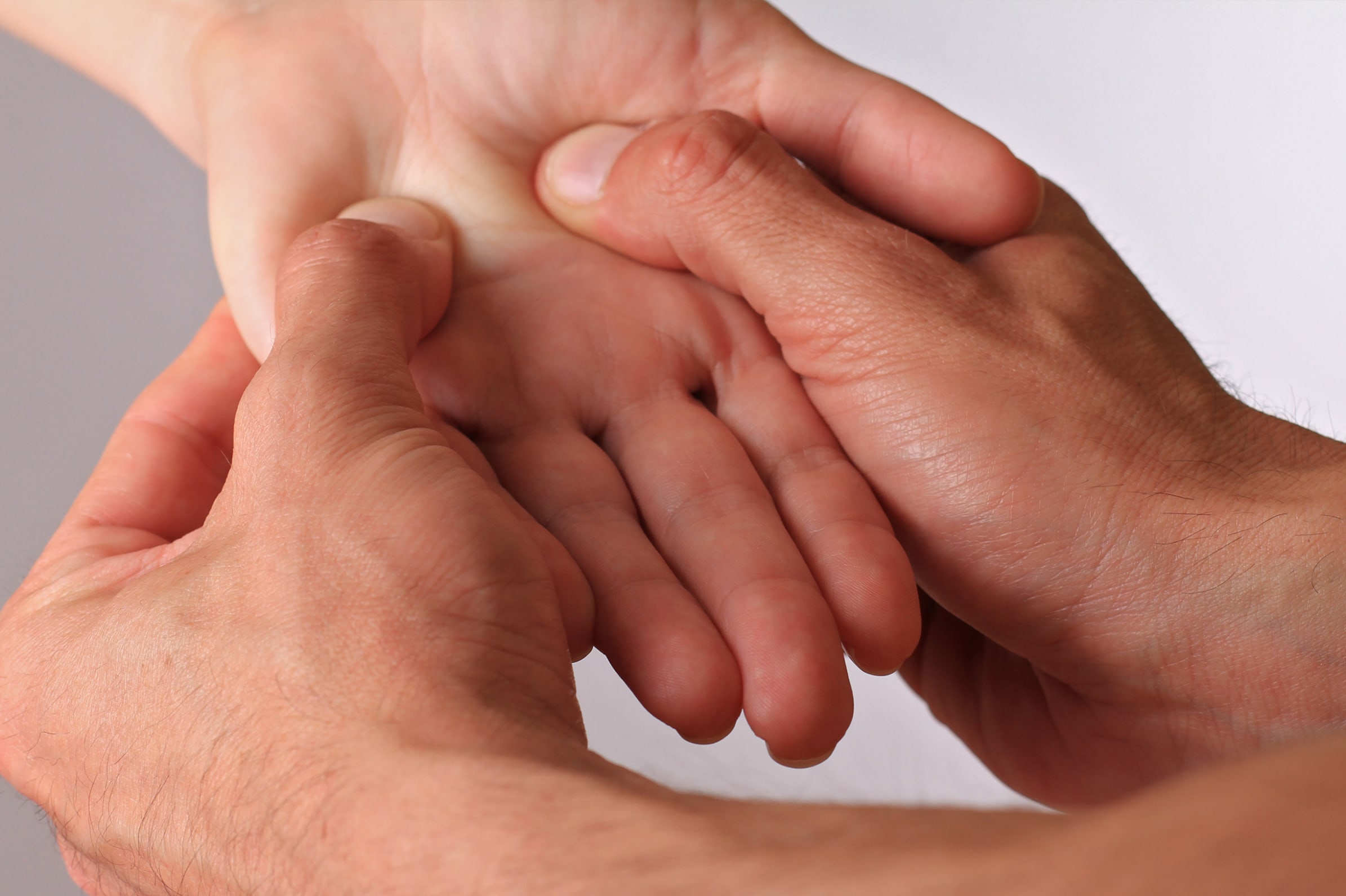
Enhanced wellbeing through acupressure

What is acupressure, how is it used, and what it can do for you?
You have without doubt already practised acupressure on yourself without even knowing it – completely intuitively. In the small recess between the eyebrows, at the nasal root, directly beneath the base of the forehead is the “third eye” pressure point. We have a tendency to rub or knead this area when our eyes are tired, or if we notice that our concentration is diminishing.
When we do this, we are actually doing ourselves some good – with acupressure! Or have you ever massaged your temples when you had a headache? Here too you are practicing acupressure on yourself, which is also referred to as acupoint massage.
Literally translated, acupressure means “needle pressure” (lat. acus = needle, lat. premere = to press). In actual fact, acupressure is very closely related to acupuncture, whereby needles are inserted into acupuncture points.
However, because acupressure is performed without any needles or other equipment, and can be performed anywhere, it is incredibly well suited for self-treatment by people of all ages and all states of health.
With the help of acupressure, you can alleviate pain and other complaints by yourself, reduce stress and even aid slimming – and do something good for your health by supporting its self-healing powers.
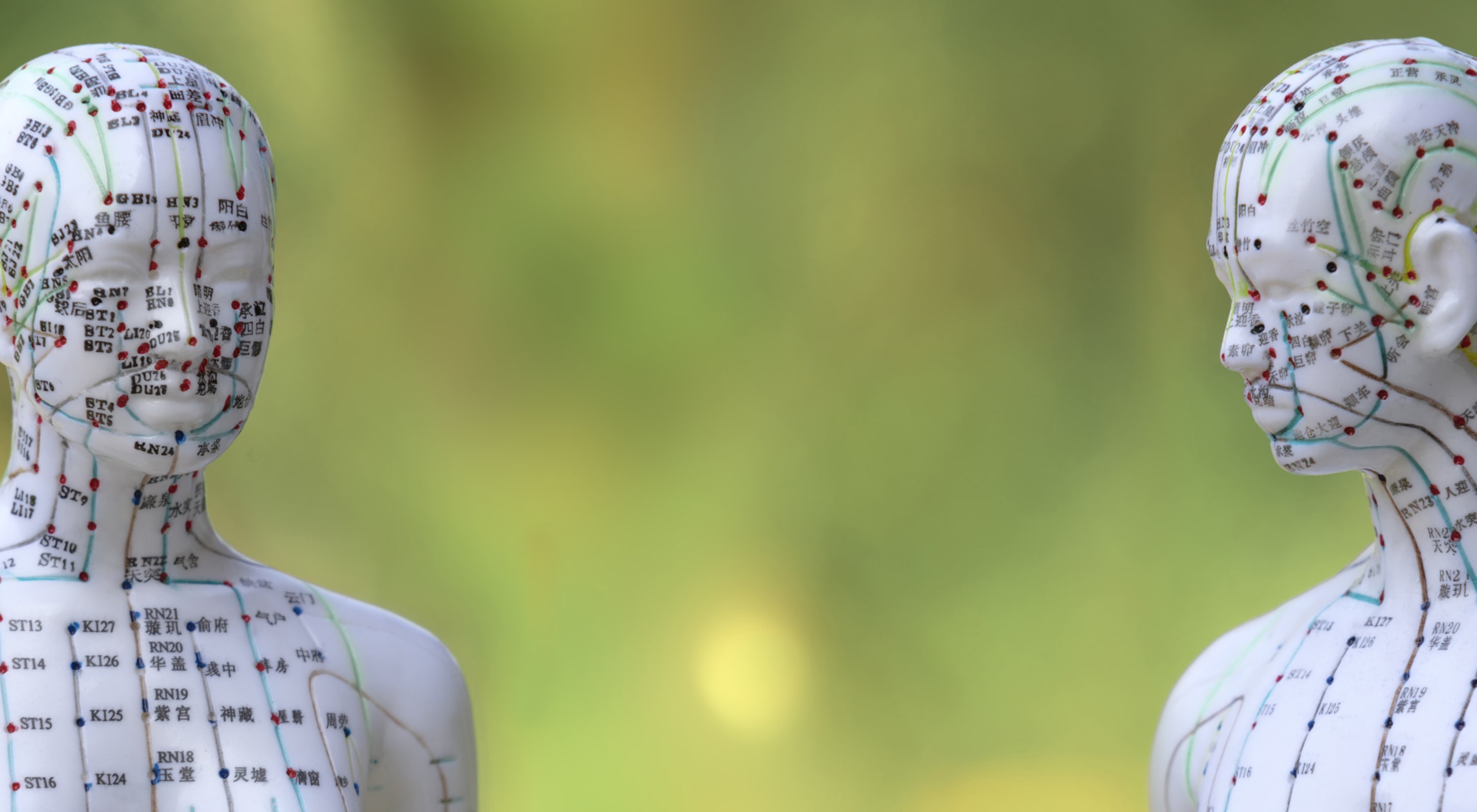
What is acupressure?
Both acupressure and acupuncture originate from TCM, Traditional Chinese Medicine. The key term in TCM is Qi (pronounced “Chee”). It is equivalent to ‘energy’ or ‘life energy’. Imagine it like this: within your body, life energy flows along/in meridians, energy pathways.
The 12 main meridians run through the entire body. They form functional circuits with the organs. Along these energy pathways, of differing lengths, lie more than 350 fixed points, in which the Qi is concentrated. On the gall bladder meridian along, for instance, there are as many as 44 acupressure points.
The individual acupressure points are each assigned to various complaints. If the energy flow within a meridian is disrupted, this can result in illnesses. You encourage this energy blockage by means of various influencing factors, such as an unhealthy lifestyle, injuries, heat and cold.
Depending on which meridian is affected by this blockage, the associated organ may no longer function optimally, and in the worst case scenario will suffer illness. If, for example, you are seeking to alleviate pain, then according to TCM, the top priority is to eradicate this energy blockage.
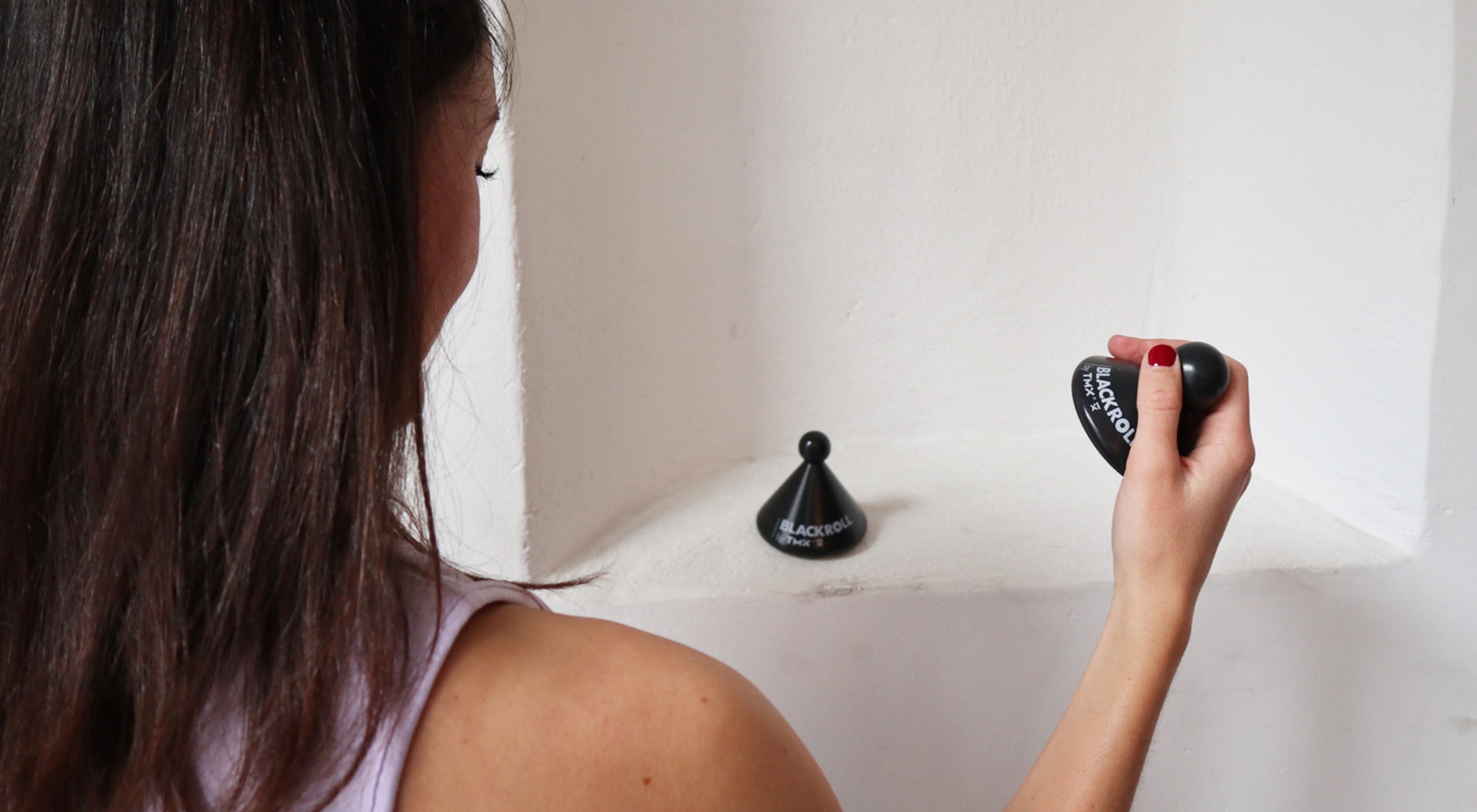
How does acupressure work?
If you would like to practise acupressure yourself, first make sure that you leave sufficient time between meals. If your stomach is too full, or not full enough, this will have an unfavourable effect.
The correct acupressure point
What is vital is that you find the correct point for your particular complaint. Books on acupressure, appropriate online articles, or training on the subject of acupressure can help you with this, or you could ask a therapist of your choice. There is no one correct point for a headache, for example. Because headaches can have the most varied of causes, you will have to try out various possible points in order to find the correct one for your specific individual headache.
Here you don’t have to find the precise pressure point. Experience has shown that the stimulation of the area in which the pressure point is located will also prove effective.
In some cases you will find small skin depressions or thickenings at the point where your individual acupressure point is located, which can serve as an additional aid in your search for the suitable acupressure point. With acupressure there can be a noticeable instant effect, however, it can also take 15 to 20 minutes until an alleviating effect occurs.
With a little trial and error, and some practice, you will be start finding the correct acupressure point faster and more accurately. If you have found the correct point, press it with your thumb or index finger (or sometimes even your fingernail) and maintain the pressure for 30 seconds to three minutes.
Specified times can range from just five seconds to as long as 15 minutes. The best option is to test for yourself which duration is comfortable and effective for you.
If using your finger to press the acupressure point is uncomfortable for you, you can alternatively use a small, rounded object, such as our BLACKROLL® TRIGGER TOOLS. These tools can also be used for trigger point massage. The main differences to acupressure are the points themselves, and how they are located.
Unlike acupressure points, the trigger points are not located on fixed pathways, and there is no link between the points and the location of the organs. Generally speaking, acupressure points do not present in the form of callous nodes in the tissue, as is the case with trigger points.
Intensity
The pressure should be light and not too painful. The intensity of the stimulation of the acupressure point can impact the effect of the acupressure on your entire body.
A calming effect can be achieved using firm pressure, while a stimulating effect can be achieved with gentle pressure. Acupressure points within the muscles can, in principle, be stimulated with greater force, whereas it is advised that you proceed more carefully in the face or on the bone.
Sometimes special pressure directions, e.g. towards the trunk or head, are also specified. This is coherent with the different directions of flow of the Qi within the meridians, which can be more subdued or more stimulated depending on the medical condition.
Rotation
You can also influence the effect of the acupressure by means of the rotating stimulation of the acupressure point, for example with the BLACKROLL® TWISTER or the Twister attachment on the BLACKROLL® TRIGGER SET TWISTER.
In case of acute illnesses, whereby in normal cases there is a surplus of energy, a clockwise direction of location offers a means be which to lessen this. In case of chronic illnesses, on the other hand, there is normally an energy deficiency, which you can stimulate by rotating in an anti-clockwise direction.
As an alternative to merely applying pressure, you can also firmly massage the acupressure point, where appropriate in a certain direction.
Vibration
A vibrating or knocking stimulation of an acupressure point can also enhance the effect.
For vibrating acupressure, both the BLACKROLL® RELEAZER in combination with the BLACKROLL® DEEP RELEAZER and the BLACKROLL® BOOSTER with the BLACKROLL® BOOSTER HEAD attachment are suitable.
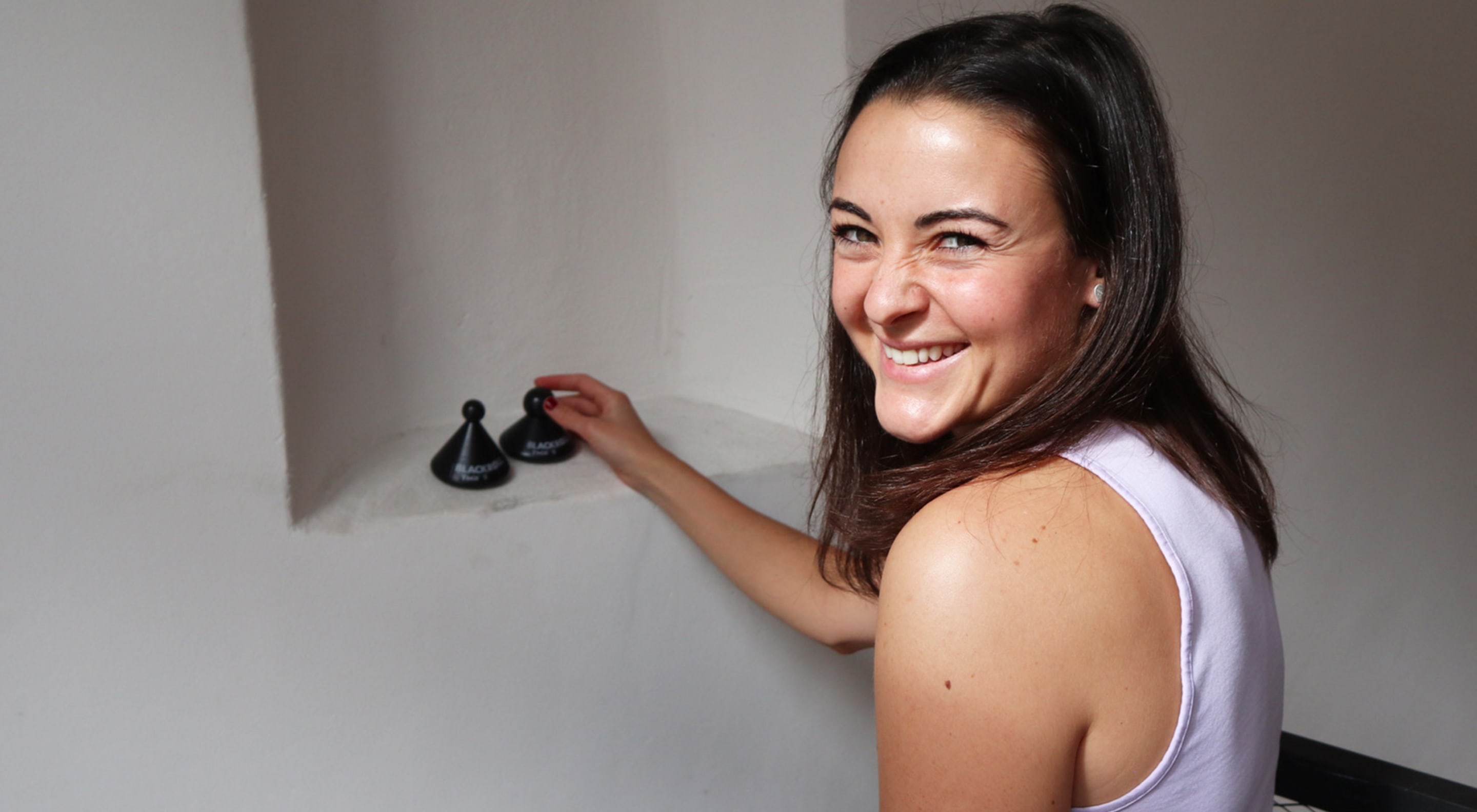
Acupressure points and their assigned effect
There are two easy-to-find acupressure points, which you should be able to find with some basic assistance. You may well experience pain when stimulating this acupressure point.
Some people experience this as “good pain” – it hurts, but at the same time, it also does you good. Perhaps you have already experienced this “good pain” from therapeutic back massage or trigger point massage. Many of the established acupressure points react sensitively to pressure in the majority of people.
However, perhaps there is something else behind this pressure pain that you are not yet aware of. Your body sometimes reacts to a medical condition long before it presents clinically.
This gives you or your therapist the opportunity to take preventative action before the symptoms appear.
Generally, it is highly recommended that you favour a precautionary, i.e. preventative, symptoms-based treatment.
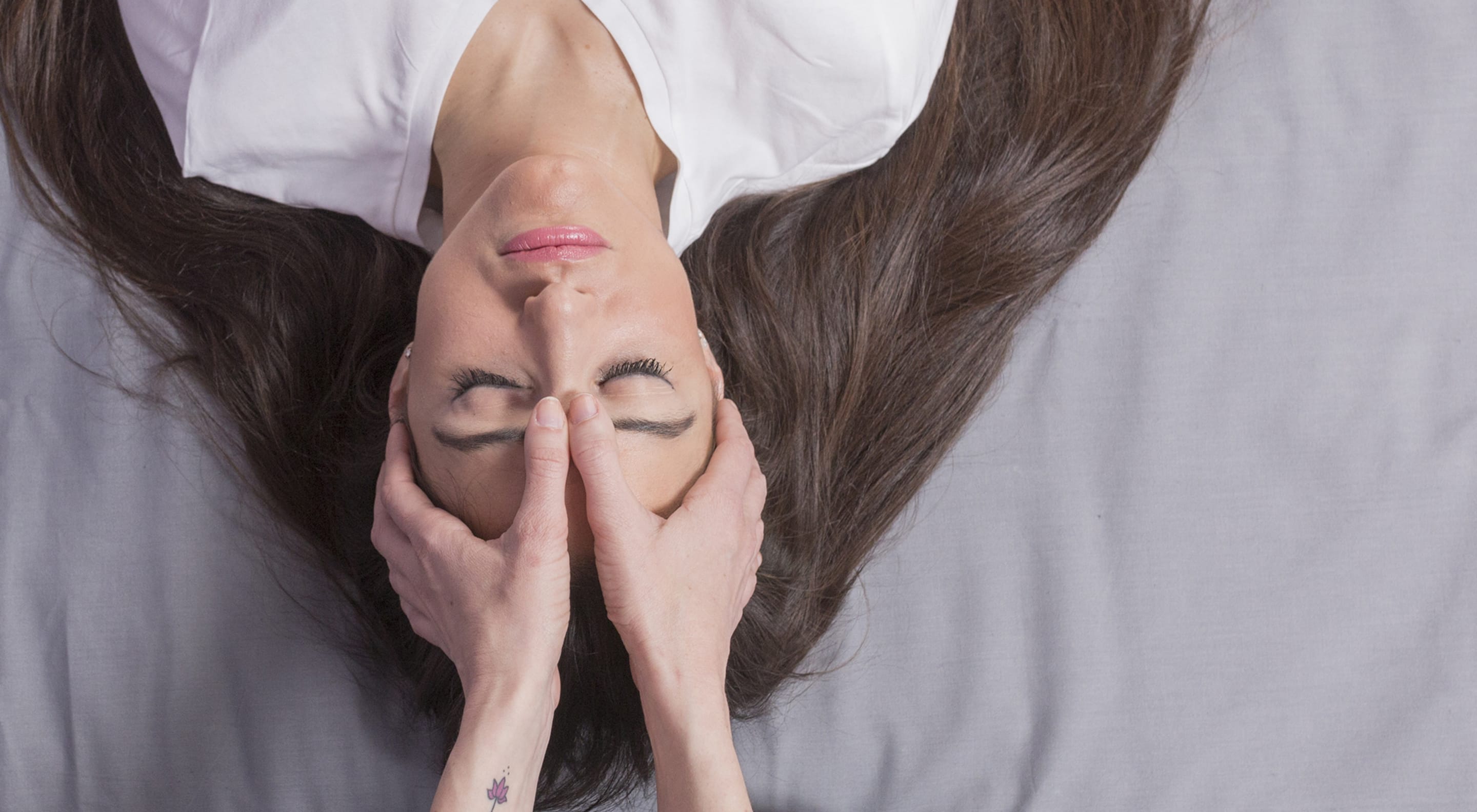
Is acupressure dangerous?
Because it is so simple to practice, acupressure is simply wonderfully suited for self-treatment – even for those with no medical training whatsoever.
It is also free from side effects – with the exception of bruises, which can sometimes form if the pressure applied is too intense. However, these side effects can be overlooked, as they are far outweighed by the benefits of acupressure.
However, other forms of therapy are better if you are suffering from serious illnesses. In this case it is preferable that acupressure is only performed as a complementary treatment, and only following consultation with the attending therapist.
Likewise, if you suffer from mental illnesses such as depression, acupressure is only suited as a complementary measure. In case of sustained chronic fatigue, which persists under self-treatment with acupressure, other forms of therapy are again preferable.
Inflamed parts of the body should not undergo acupressure, and an experienced therapist should perform the acupressure if you are pregnant or if it is being performed on babies.
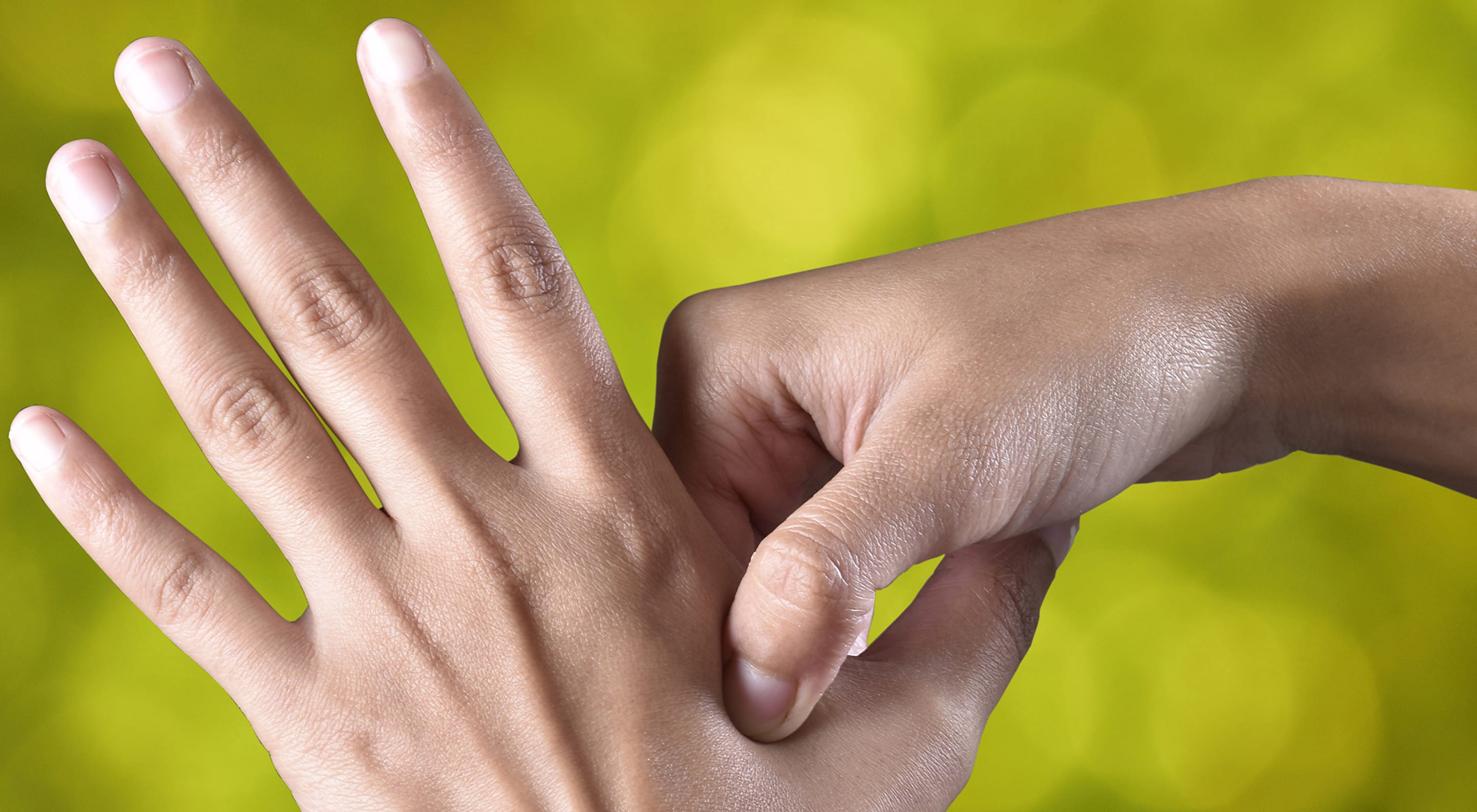
How long does acupressure require to take effect?
Depending on how long you decide to apply pressure when performing acupressure, you will also perform the self-treatment at varying intervals throughout the day. If you hold individual acupressure points for a very long time, once a day, or even once every other day will be sufficient.
If, on the other hand, the duration of the acupressure treatment is relatively short, you can then perform the acupressure three to four times daily. In this case you could, for example, incorporate self-treatment with acupressure into your daily routine, in the morning, afternoon and evening.
Only if you establish a fixed slot for acupressure within your daily routine will you ultimately practice this form of self-treatment with sufficient frequency, over a prolonged period of time. Incidentally, this rings true for practically all not-strictly-necessary activities that aim to improve our health and prevent illnesses.
Experience has shown that acute conditions responds much quicker to acupressure than chronic conditions. These often require more time before the acupressure causes a noticeable alleviation of symptoms. As you can imagine, it took some time for these chronic conditions to form.
This chronic suffering did not appear all of a sudden, so neither can it disappear in an instant. Moreover, burdensome circumstances can also delay the rapid alleviation of your condition.
For which conditions can acupressure provide relief?
You can prevent the most diverse of physical conditions using acupressure, and you can treat them if you are already experiencing symptoms such as pain. Below you will find a list of possible conditions and areas of application that can be positively influenced with acupressure.
Physical suffering
Muscle tension, back pain, lumbago, neck pain, shoulder pain, knee pain, discomfort, cramps, circulation problems, high blood pressure, tinnitus, headaches, migraines, tooth ache, insomnia, fatigue, menstrual pain, irregular periods, nausea, constipation, respiratory diseases, allergies
Psychological suffering
Anxiety, exhaustion, restlessness, tension
Infectious diseases
Colds, sniffles, ear infections
Weight loss (as a support)
With regards to excess weight, TCM would say that an imbalance in the life energy can result in increased appetite, and consequently to an increased calorie intake, resulting in an increase in body weight. The goal is to harmonise the Qi flow and thus curb the sensation of hunger. Here acupressure can only be used as a complementary treatment. When it comes to loosing weight, other fundamental factors are of greater importance.
Smoking cessation (as a support)
The same also applies for smoking cessation. Here acupressure can provide a wonderful support. However, what is vital is the desire to give up smoking.
How effective is acupressure?
Unfortunately there are no truly reliable studies on acupressure itself. Opinions regarding its effect range from “without effect” to “effective”, to “just a placebo effect”.
One study on acupuncture conducted by Charité Berlin provided impressive results: “Three out of four patients with headache or lumbar syndrome (pain in the area of the lumbar spine) reported significant improvement, even six months after the treatment.
This rate was even higher in case of osteoarthritis pain (86 percent), asthma/allergic rhinitis (82 percent) and dysmenorrhoea (period pain) (85 percent). It can be assumed that with regular acupressure treatment, a similarly high level of success to that achieved with acupuncture is possible.


